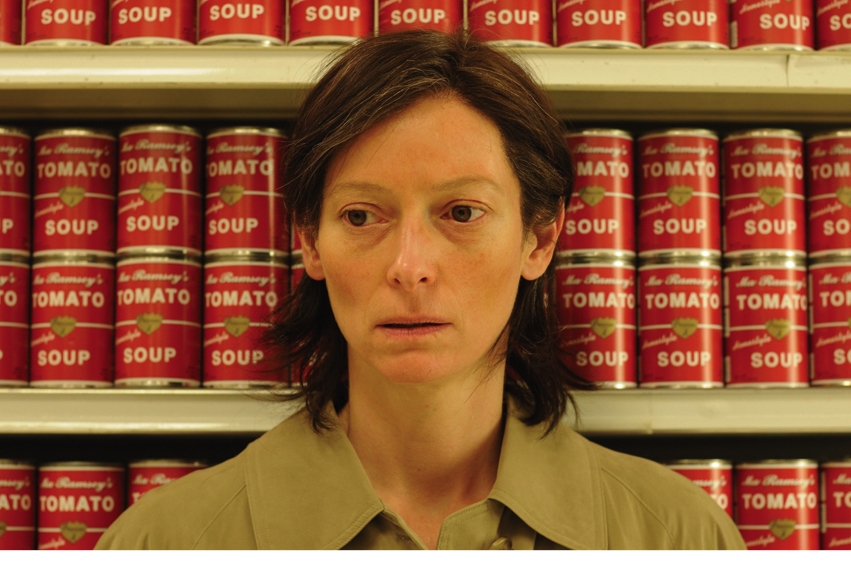We Need to Talk About Kevin was a horrible book and this is the horrible screen adaptation of that horrible book, and whether you will want to see it or not will, I suppose, depend on how much you are prepared to revisit that horror. At this point I’d love to say you needn’t bother, skip it, there is absolutely no reason why you should upset yourself all over again, but this has been so skilfully executed and Tilda Swinton is so superb I don’t know if I can. It may be one of those pesky films that is awful to watch but is worth watching all the same. Oh, dear. The trouble with cinema is that it can sometimes be quite challenging and may even force you to think, which is exhausting. As it is, I know that when I’ve finished writing this I will have to go for a lie-down and may only require something light for supper, like a boiled egg on a tray.
OK, let’s get it over with. This is the story of a mother, Eva, whose teenage son, Kevin, has committed one of those Columbine-style high school massacres. A spoiler? No, because much of the nightmarish power of this story comes from knowing exactly where we are heading, but not knowing exactly how we are going to get there. Foreknowledge is its driving force. Anyway, the book, by Lionel Shriver, takes the form of letters from Eva to her absent husband, Franklin, as she searches for some kind of explanation, and although the director, Lynne Ramsay, could have gone down the obvious voice-over route, she wisely and successfully opts for vignettes snapping back and forth in time instead. This gives the film an urgent feel for what is an urgent quest. How is Eva to carry on, if she doesn’t know why?
Eva (Tilda Swinton), in the present, lives in a nondescript house in a small town where her life is an unending hell, as it would be if your son had done what her son has done. (My teenage son leaves wet towels all over his bedroom; I can now see this isn’t the crime of the century.) She is the frequent target of outrage from the local community. One woman slaps her face as she is leaving the supermarket. Paint is thrown over her house and car. The paint is red, and splatters like blood. Later, there will be jam symbolising blood and ketchup symbolising blood and a tomato festival (can you believe) symbolising blood and every scene will feature at least one thing that is startlingly red, to symbolise blood. You may feel differently but, after a while, this did rather get on my nerves. Eva’s world has been splattered in blood, Lynne. I get it. Enough, already.
Still, this is only a minor irritation, and does not outweigh what this film does well. Everything in Kevin happens within Eva’s tormented mind, and Swinton is astounding, incredible. We know, as an audience, what she is thinking even when those around her do not, which is something only the finest actors can pull off — I’ve never seen Jennifer Aniston manage it, for example, although she does have nice hair — plus it’s as if she is out there with her skin peeled off. Her mind travels back to her single, happy, pre-Kevin days when she was a famous travel writer, through to her marriage to Franklin (John C. Reilly) and the birth of Kevin (played by Jasper Newell as a toddler and Ezra Miller as a teenager).
I remember more ambiguity in the book. Did Eva actually want children? Did Kevin feel her resentment? Is she to blame? But this paints Kevin as malign and a sociopath from the word go. He resists speaking. He resists potty training. He is broody and sinister and always eyeing up his mother darkly. There are ‘accidents’. What has happened to his little sister’s guinea pig? What will happen to her eye? Eva is on to him but can never quite get to the bottom of such malice, while Franklin sees nothing and will not be enlightened. (This could just have easily been called: He Wouldn’t Talk About Kevin.)
You can’t exactly enjoy a film like this, but you will get to experience an actress at the top of her game and, all that irritating symbolism aside — watch out for the lychee, by the way — a director at the top of hers. Ms Ramsay stays fully in charge of the fractured narrative, keeps you on edge, and overlays textures and sounds in the most startling and deliberately off-putting ways. I never thought someone biting their nails could be so nerve-janglingly spooky. Kevin raises all sorts of questions but provides no answers — are there ever any, after a killing spree? — and you’ll have to decide for yourself if you wish to be challenged in this way. Are we now done? Good. I’m off to lie down.





Comments